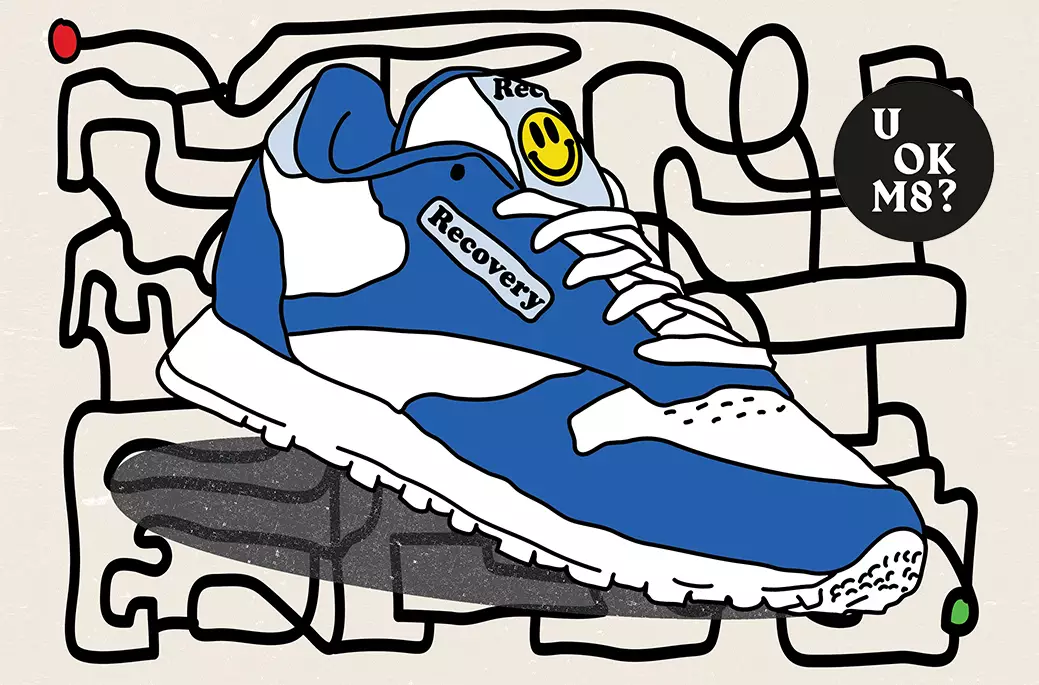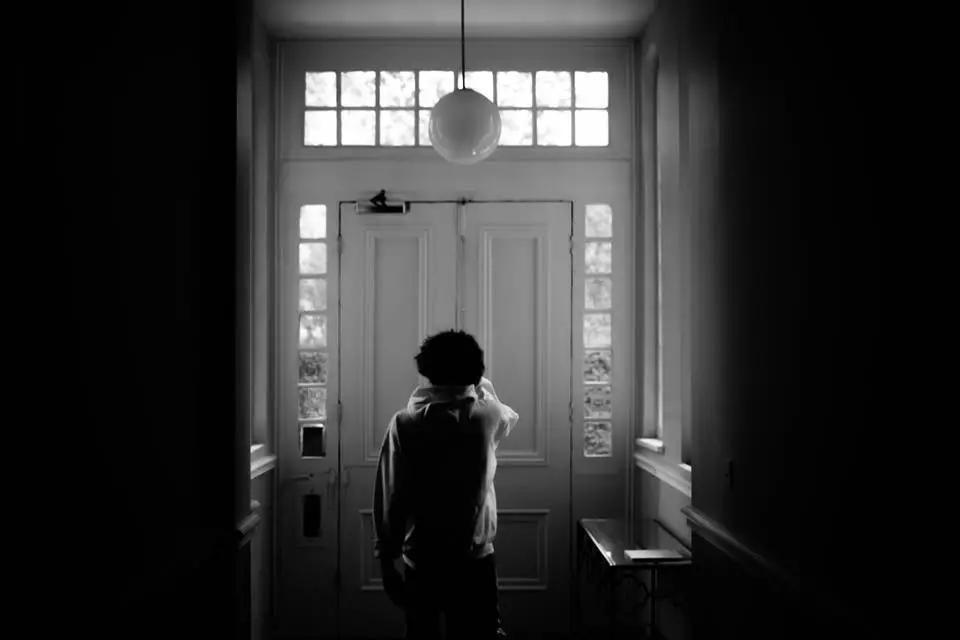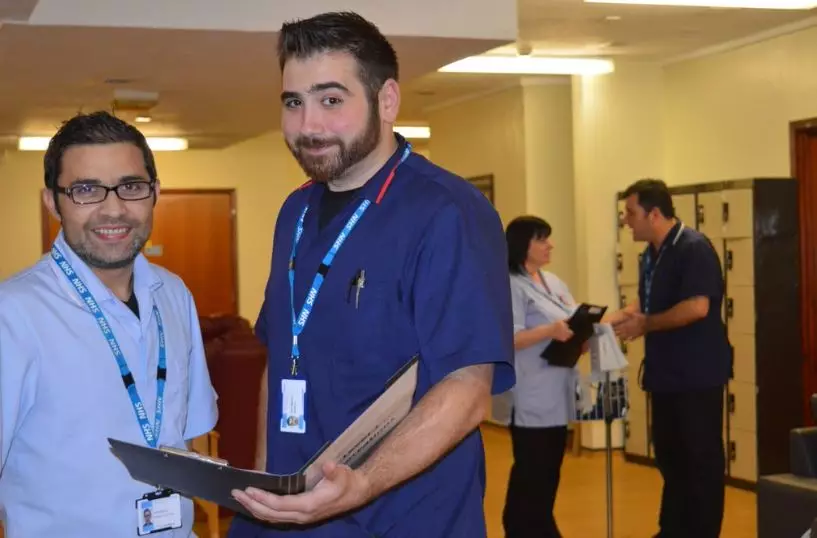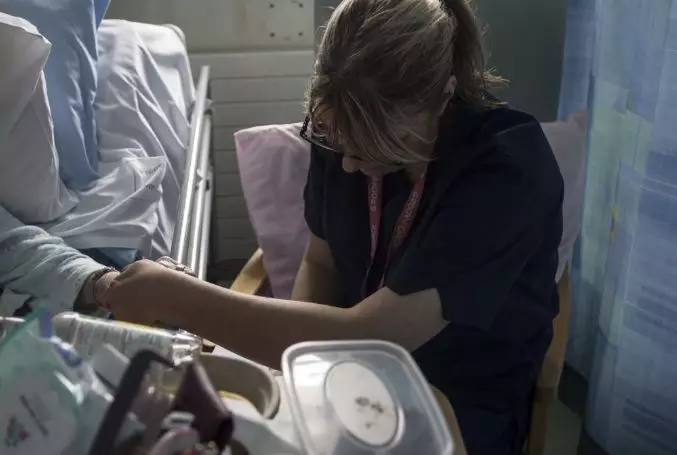
Being a mental health nurse is demanding. It's a tough job, there is no doubt about it. It requires quick thinking, strength and a genuine passion to help those who need that care - all of which is done with a caring nature. Being a mental health nurse is no nine-to-five job. The aim, to rehabilitate lives and repair minds, is achieved through long-term treatment and not straitjackets and bright-white rooms. There's no one pill as a cure; it's a complicated and enduring road to recovery. For the nurses, their exertion often goes without thanks and many, I am sure, don't fully realise what it takes to wear the uniform.
Being a mental health nurse...
Could you wake up at the crack of dawn, put your nursing skills to the test in a secure building where minds are misunderstood? Could you help those who need it most? Once your gruelling shift is over, on a bad day, could you then be able to shut it all out of your mind? Not many of us could, if we are being honest.
Why would anyone choose to be a mental health nurse if it requires all of the above? Well, for some it's a challenge. For others, being able to help vulnerable people is rewarding. Some just see it as a job that someone has to do. I guess the achievement to help others outweighs the hard days.
Other than the obvious, what does it take to be a mental health nurse? We spoke to two nurses to find out more. Names have been changed.
Tom's story
Tom King is a mental health student nurse in his third year of training. His university life, between the downtime of going out like every other student, consists of being on the ward actively working with mentally ill patients.
His last shift was on placement at an adolescent ward for children aged 13-17 with a wide variety of mental health issues, ranging from psychosis to depression to eating disorders.

Credit: Milo
Here's what his shift looked like:
6.00am - I woke up and got ready for the day ahead.
7.00am - I caught up with the nurses in the office and talk for a while with a patient who was sitting in the communal area; he hadn't slept as the voices in his head were particularly bad that night. I asked him about them but he's too tired to talk, so I left him with a glass of water and make a mental note to play some football with him later to try and offer some distraction.
7.10am - I met with the nurses who had just been on duty for a handover session. It's an important period, as urgent tasks are noted down and any observations or comments are shared. Once this was over, the shift began.
7.15-8.15am - For the first hour or so I made sure the ward is ready for the shift: that the communal areas are tidy, the food is laid out for breakfast and the medication trolley is ready to go. While this goes on, another person is walking around the ward to check everyone is okay in their rooms. At this time, most are usually still asleep but these checks really can't be too thorough: self-harm and suicidal thoughts (not the same thing) are an unfortunate but common reality when it comes to mental health, so we need to be aware of people acting on these thoughts and then work with them to find an alternative method of coping. On this particular check, a nurse found a young girl in her room with fresh cuts to her arms. She had used a piece of sharp plastic broken off from her window sill. She is taken to the clinical room and the cuts are cleaned and treated. This girl had been working especially hard recently to not use self-harm as a coping strategy, so she was upset and angry with herself for 'failing'. She was reassured that what she has done is not a 'failure', but a natural setback that comes with mental health recovery. Self-harm can become a habit of behaviour when emotions become too intense, and it can often take a long time to substitute this for another way of dealing with them.
8.20-8.40am - Once all the kids were up and awake, they had their breakfast and go to school. Some were a bit reluctant, but that's the case with most teenagers. We need to be aware not to lump every behaviour a person exhibits as a mental health symptom; certain things need to be put into context.
8.40am-2.50pm - While the kids are at school, the nurses caught up on some paperwork, which includes writing care plans, risk assessments and case notes. As a student, I use this time to look through my practice book and make a note of what I need to tick off by the end of the placement.
3.00pm - Once school is over, the kids came back onto the ward and we tried to engage them in activities. The most important thing here is not to be patronising. As a mental health nurse, you must remind yourself that you must earn the trust of the people you care for; your uniform does not give you an entitlement to intrude.
4.00pm - I found the time to play football with the lad who didn't sleep last night. He started to talking to me about his frustration and I reassured him.
5.00pm - I debriefed from my shift and handed over to the nurse about to start theirs.
6.00-6.10pm - I used the drive home to reflect on the day's events.
6.15pm-8.00pm - I got home and talk to my friends and family but was cautious not to breach any code of confidentiality.

Image credit: Twitter/NHS
King originally wanted to study philosophy. However, when he realised that he wanted to be more hands on, he decided that working as a mental health nurse would suit him better. "Nobody is completely mentally well," he explains. "Mental health is under reported, I won't shy away from the fact that I have suffered from depression and anxiety before, but now having studied it for two years, I have seen the extreme - the result of people bottling up emotions."
Psychotic episodes come in at the extreme end of the mental health spectrum. "The word psychotic in the media is misused," explains King. "So psychotic isn't a killer or someone having aggressive behaviour, it can be a series of confusion or visual hallucinations."
I would imagine that someone has come into the job as a mental health nurse because of their caring nature, would find it difficult to switch off from certain experiences once the shift is over.
"I'm still learning how to focus away from the job after my shift," admits King. "It's important, as a nurse, to accept what's going on in the ward. Talking helps and it makes it easier to process after the shift."
"We need to be let into the lives of those who are at the lowest point they have ever been at," he says. "You have to be able to gain their trust and show them that you are there to support them and help them through their journey." Each patient is different, which I can understand. Therefore, treatment will vary for each patient. "Our job is to find the best life for our patients. We are not necessarily finding a cure, sometimes there isn't one," says King. "Instead, we are helping with recovery. The definition of 'well' is interesting. One person's definition will contradict someone else's. It's always about what works for the patient."
Here's a clip further explains the understanding nature required to help patients recover.
Video credit: YouTube/Nursing Standard
Claire's story:
Having been a mental health nurse for more than 30 years, Claire has seen her fair share of incidents on the ward. Putting her experience to good use, she now works as a mental health nurse senior lecturer at a university. "I started my training in an asylum in Surrey in 1987," she said. "At that time, to be a man and be diagnosed with a mental health illness was a sign of weakness. I was soon very interested in the issues of gender."
Treatment for mentally ill patients was very different back then. Claire explains: "As a student at the asylum, I helped hold down a young woman who was having ECT (electric convulsive therapy). One of the psychiatrists said, 'this young woman is far too pretty to be a schizophrenic. I have never forgotten that moment, 'what does a mentally ill woman or man look like?' I thought."
Over the years, Claire has never been assaulted by a patient - she's been told to 'fuck off' a few times- but never actually physically attacked. It's not all about restraints, locked doors and white jackets; it's about care and working to give the individual the right recovery that works for them.
It was interesting, to me, hearing just how varied treatment can be. Claire asks me to understand that sometimes patients rely on their symptoms. She explains: "I worked with somebody who believed they had the voices of Francis of Assisi in their minds. When he was on medication, the voices reduced and he missed them terribly because they served a purpose for him. He found them comforting.
"I have also worked with a lot of people who claim that they are God for example. It's important not to reinforce that delusion but also not to deny it, because, actually when people lose their symptoms, they can sometimes feel a great loss.
"Recovery is great, but we have to ensure, as nurses, that the patient has enough support to feel full again."
Claire recognises that social stigma also affects people talking about mental health. "I think men feel quite lost," she adds. "Now there seems to be a lack of clarity about men's roles and so on. Therefore, I believe there is still so much work to do with young men and mental health. Again, we have to keep talking about it."

Image credit: Twitter/@altshutter
Let's not forget mental health nurses are humans too. Just like the patients they are caring for, they sometimes feel sad, happy and/or even frightened at times. Claire prepares students for their placements but the reality is that nothing can prepare them for what comes next. "It's always a shock," she explains. "One nurse was on a ward and had to read out patient notes of a patient who had done pretty horrendous things. She had to read these notes while the patient stood at the glass waving at her."
We are leaps and bounds ahead of some other countries who are yet to understand mental health, but we still have a way to go.

Credit: Blake
So, I have supplied you with a glimpse into the lives of a mental health nurse. The truth is that every nurse's experience will be different - some will be more fast-paced than others - each will require different skills. All will prepare for the worst case scenario, all care deeply for their patients' well-being and all believe that more needs to be done to break down the social barrier when talking about one's own mental health.
What do you think, have you got what it takes to be a mental health nurse?
'U OK M8?' is an initiative from TheLADbible in partnership with a range of mental health charities which will feature a series of films and stories to raise awareness of mental health.
Explore more here and don't suffer in silence. Reach out. It's the brave thing to do.
MIND: 0300 123 3393.
Samaritans: 116 123.
CALM: Outside London 0808 802 5858, inside London 0800 58 58 58.
At TheLADbible we're trying to gather the biggest picture of mental health for young people and we're working with a range of charities so that our findings can help them. Filling in this poll will help us find out the extent of the problem.
Featured Image Credit: